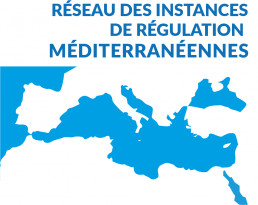Role
The Second Authority for Television and Radio is a public authority that regulates commercial broadcasts in Israel. The Second Authority operates by virtue of the Law of the Second Authority for Television and Radio – 1990, modified in 2000.
The Second Authority represents the public interest in the commercial broadcasting channels in Israel, enables their operations and regulates them, promotes original productions, protects against the offense of the public interest, encourages the incorporation of public interest contents and initiates studies on the social effects of the broadcasts.
A public council comprised of fifteen members, who reflect the variety of publicly held opinions, heads the Second Authority. The Council determines the policy of the Second Authority and appoints its Director General, bases on the recommendation of the minister in charge and the approval of the Government. The Director General is responsible for implementing this policy.
The Second Authority conducts tenders for television and radio broadcasting and grants broadcasting franchises. The commercial channels regulated by the Second Authority currently include the following communication systems : Channel 2, Channel 10 and regional radio and television stations.
Israel’s first commercial channel was launched in November 1993, thus breaking the Israeli Broadcasting Authority’s 25-year monopoly and establishing nationwide television broadcasts, accessible to all. In 2000, the law governing the Second Authority was amended, and the stage was set for an additional commercial station, which began broadcasting on January 28, 2002. The launch of Channel 10 station heralded the end to Channel’s 2 monopoly on the television advertising market.
The law of the Second Authority regulates the establishment of regional radio stations, operated by private franchisees through commercial financing and under public supervision. Distributed nationwide, from Metulla in the north to Eilat in the south, the first stations began broadcasting in September 1995 and redesigned the map of radio in Israel.
Duties
Duties The Second Authority is responsible for providing broadcasts through franchisees and supervising them. In fulfilling its responsibilities, the Second Authority strives toward representing, serving and promoting, according to law and in a professional manner, the various elements of the public interest, including social and cultural values in commercial media. Within this framework, the Second Authority is determined to initiate and lead processes that influence the field of communications in Israel. The Second Authority is bound by law to the following basic principles :
- Promotion of Hebrew and Israeli creations.
- Development of good citizenship and enhancement of the values of democracy and humanism.
- Providing expression to Jewish heritage, its values, and to the values of Zionism.
- Depiction of diverse cultures, human creation and the values of civilization throughout history.
- Provision of broadcasts in Arabic for the benefit of the Arab speaking population, and promoting the understanding and peace with neighboring countries in accordance with the fundamental principles of the state.
- Demonstrating the cultural diversity of Israeli society, while addressing the geographical uniqueness of each of its regions and diverse modes of settlement, and relating to the different points of view held by its public.
- Broadcasting reliable, fair and balanced information.
- Broadcasting educational programs for the general public and for specific groups within the population.
- Broadcasting programs in foreign languages for new immigrants and tourists.
- Preventing the broadcast of programs forbidden by the Law of the Second Authority and the Law of Classifying and Rating of programs.
Actions
In accordance with its responsibility, the Second Authority conducts a variety of activities including :
- The promotion of public interest broascasts and quality content, through the aid of a quota system (for upper genre programs, such as dramas and documentaries, purchased productions, Programs for special interest audiences and more), the setting of appropriate production conditions, the obligation to invest in Israeli cinema, the broascasting of Second Authority’s productions, regional radio broadcasters’ classification, and support for young artists and original work.
- Approval of broadcasting schedules provided by franchisees.
- Formulating rules of ethics in programs and advertisement and monitoring the implementation of these rules by the franchisees.
- Engineering supervision of the technical quality of the broadcasts and the operation of advanced distribution systems for Channel 2 (analog and digital) and Channel 10 (digital). Conducting research and testing different aspects relevant to field of communications, commercial broadcasting and regulation.
The Council Members
The SATR is composed of a council of fourteen members representing the plurality of public opinion.
- Ms Yulia Shamalov Berkovich, Chairperson
- Mr Yitzhak Borba, Member
- Ms Michal Shapira, Member
- Ms Yochi Feller, Member
- Ms Dalia Zelikovich, Member
- Ms Suhair Nahas, Member
- Ms Mare Maro Sanbato, Member
- Mr Shafik Abed, Member
Contact
Website : www.rashut2.org.il
Hanny@rashut2.org.il

